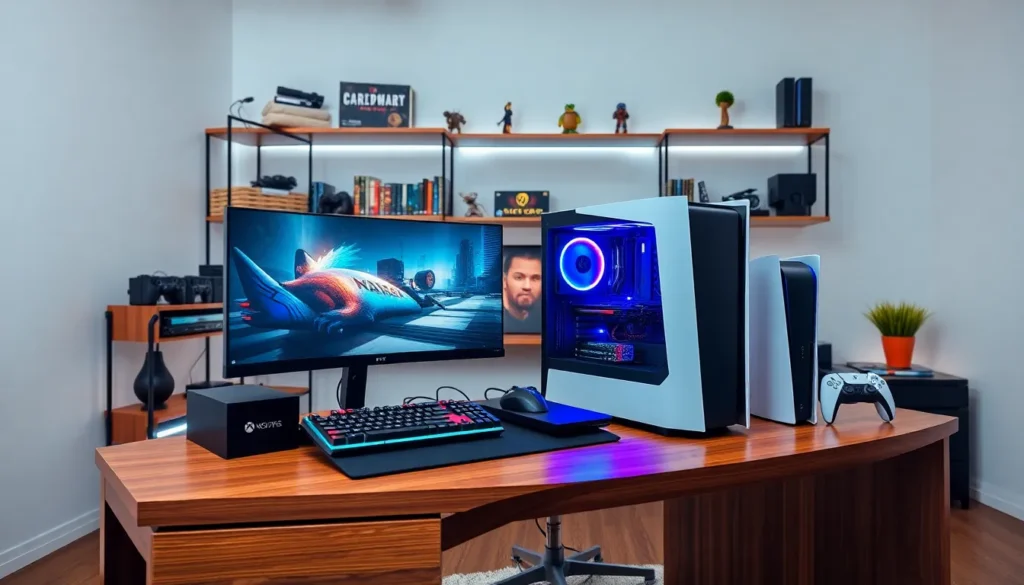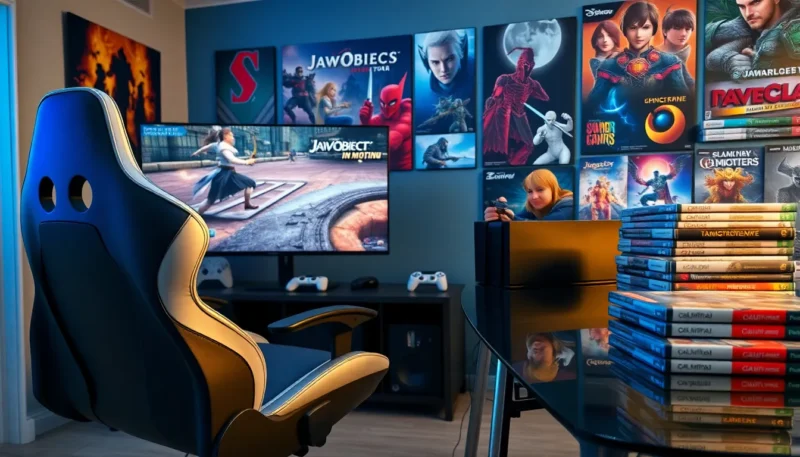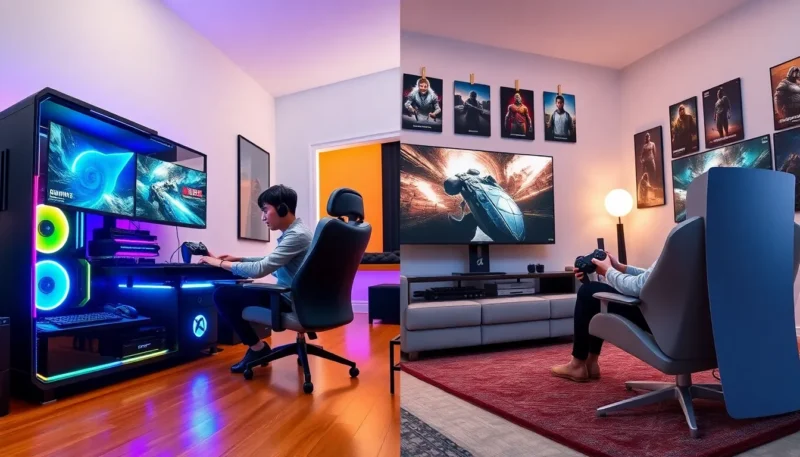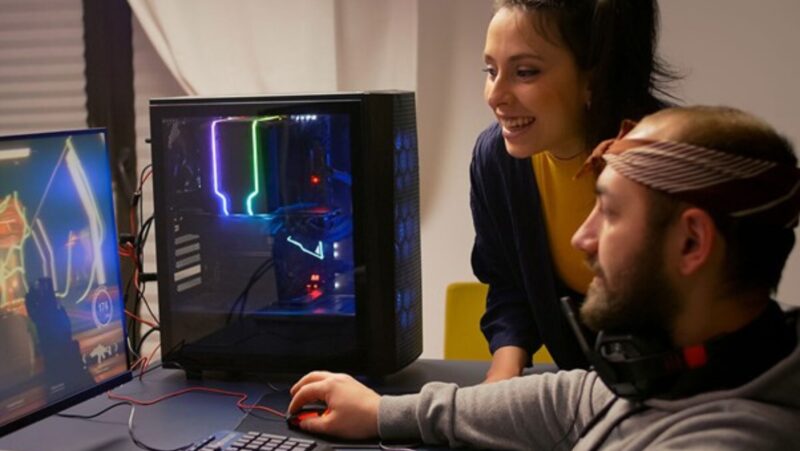
When it comes to gaming, two major players dominate the field: PCs and consoles. It’s like asking whether pizza is better than tacos. Each has its fanatical followers, and for good reason. In this text, we’ll dive deep into the ring of PC versus console gaming and explore what each offers, who reigns supreme, and maybe even throw in a few laughs along the way. Get ready, gamer, it’s about to get heated.
Pc or Console for Gaming

Performance And Power
When it comes to sheer performance, PCs often take the crown. With the ability to install powerful graphics cards and processors, a gaming PC can run the latest titles at stunning resolutions and frame rates. Scalability is key here. Unlike its console counterpart, which remains fixed in capabilities, a PC allows for upgrades as technology advances. So, whether they want to play in 4K at 120fps or jump into VR experiences, the PC is ready to deliver.
On the flip side, consoles are optimized for gaming right out of the box. Developers create games knowing exactly what performance to expect from the hardware. This can sometimes lead to better performance in specific scenarios, like online play, where latency and speed matter. An example? The PlayStation 5 and Xbox Series X are powerful machines, delivering impressive graphics, quick load times, and smooth gameplay.
Customization And Upgradability
Customization separates the two platforms significantly. Gamers who enjoy tinkering with their systems prefer PCs due to the freedom they offer. Build a rig that suits personal preferences, from aesthetics to cooling systems. The thrill of handpicking each component creates a unique experience.
But, consoles aren’t entirely left out of the customization game. While they don’t offer the same level of freedom, users can personalize their consoles through themes and exclusive console accessories. Also, some consoles offer expandable storage solutions to accommodate larger game libraries, which is a plus for many.
Exclusive Games And Titles
Exclusive titles play a crucial role in the decision-making process. Consoles like PlayStation have iconic exclusives such as “God of War” and “The Last of Us,” creating a strong pull for gamers. Microsoft’s Xbox similarly boasts titles like “Halo” and “Gears of War.”
PC gaming also has its gems, especially in the realm of indie games and niche genres. Also, platforms like Steam provide immense libraries, often at discounted prices during sales. Yet, for many gamers, the big-name exclusives on consoles can make the console feel like the must-have option.
User Experience And Accessibility
Online Services And Community
Both platforms offer diverse online experiences, yet they each approach it differently. Consoles typically come with subscription-based services like Xbox Live and PlayStation Plus. These services grant exclusive discounts, robust online multiplayer, and access to free monthly games. For many, it creates a sense of community within the gaming world, making it easy to connect with friends or meet new players.
Conversely, PC users often flirt with free online multiplayer through platforms like Steam or Epic Games. Mods, user-generated content, and community forums allow players to enhance their gaming experiences. Players can directly interact with developers, often making for a richer community engagement overall.
Cost Considerations: Initial And Ongoing Expenses
Budget plays a significant role in this epic showdown. Initially, investing in a gaming PC can seem steep. High-quality components add up, and peripherals can further inflate the price tag. A decent gaming rig can cost several times more than a console, yet it opens the door to more extensive gaming experiences.
On the other hand, purchasing a console often involves a more palatable upfront price. But, the ongoing costs of games, subscriptions, and accessories may not remain as simple. Thankfully, many consoles also enjoy sales events, which can provide substantial savings on blockbuster titles.
Budget-conscious gamers should evaluate how much they’re willing to spend upfront versus their long-term gaming investment. To illustrate, after a few years, that budget PC may eventually cost less as it can last longer and be upgraded, while a console might need to be replaced with a new model.
Future-Proofing Your Gaming Setup
The future of gaming is a vital consideration. PCs typically excel in this department. As technology continues to evolve, gamers can seamlessly upgrade their systems to keep pace. Replacing a graphics card or adding more RAM can ensure they stay on the cutting edge.
Consoles, but, follow a more fixed lifecycle. Though new generations release every several years, gamers are tied to the hardware until the next iteration becomes available. If they love having the latest and greatest, they might feel confined by these cycles. For forward-thinking gamers, investing in a solid PC may offer more longevity in the long run.












